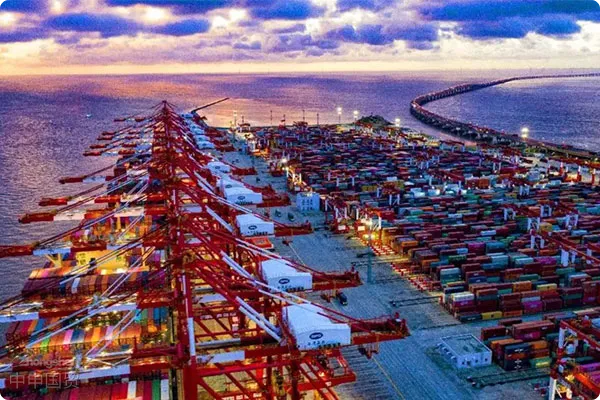- Shanghai Zhongshen International Trade Co., Ltd. - Two decades of trade agency expertise.
- Service Hotline: 139 1787 2118
According to latest Shanghai Customs data, Shanghais exports to Russia in April 2024 totaled $333 million, down 19% year-on-year. Following Marchs 21.7% decline, this further significant drop reflects sanctions profound impact on Shanghai-Russia trade. Affected by March and April declines, Shanghais January-April exports to Russia reached $1.485 billion, up just 2.2% year-on-year. In RMB terms, April exports were 2.28 billion yuan, down 16.5%.
Analysis indicates this decline closely relates to U.S. Executive Order 14114 issued December 22, 2023. The order expanded sanctions authority against foreign financial institutions facilitating significant transactions supporting Russias military-industrial base, allowing sanctions on banks assisting certain critical items sales to Russia. Post-order, many international banks tightened trade settlements with Russia to avoid risks, directly causing settlement difficulties in China-Russia trade and impacting actual trade volume.
As Chinas key international trade hub, Shanghais declining Russia trade reflects sanctions profound impact on bilateral economic exchanges. April 2024 exports to Russia were $333 million, down 19%, following Marchs 21.7% decline, showing two consecutive months of significant drops. Consequently, January-April exports grew just 2.2% to $1.485 billion.
RMB-denominated trade figures are equally concerning. April exports were 2.28 billion yuan, down 16.5%. This downward trend pressures Shanghais Russia exports and negatively impacts the overall economy.
Sanction implementation has made China-Russia trade settlements more complex and difficult. Many international banks tightened Russia-related settlements post-order, causing payment and settlement difficulties for Shanghai exporters, further hindering trade growth.
This situation directly affects Shanghai exporters and poses new challenges for the financial system. Banks must exercise extreme caution in Russia-related transactions to avoid sanctions violations, increasing transaction costs and timelines while compressing corporate profit margins.
Facing sanctions and settlement difficulties, Shanghai companies must adopt multiple strategies. First, strengthen research into sanction policies to ensure compliance. Second, diversify market presence to reduce single-market dependence. Third, enhance communication with banks to identify secure settlement channels.
Additionally, companies can explore cooperation opportunities in non-sanctioned sectors like agriculture, healthcare and education to expand trade depth and breadth.

Related Recommendations
? 2025. All Rights Reserved. 滬ICP備2023007705號-2  PSB Record: Shanghai No.31011502009912
PSB Record: Shanghai No.31011502009912









